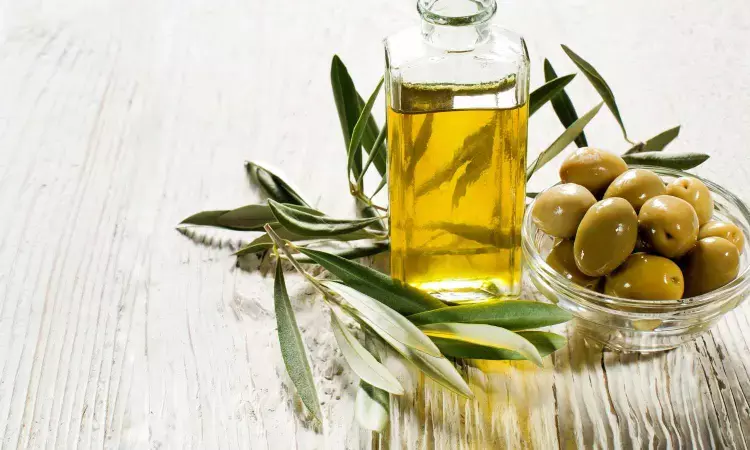- Home
- Medical news & Guidelines
- Anesthesiology
- Cardiology and CTVS
- Critical Care
- Dentistry
- Dermatology
- Diabetes and Endocrinology
- ENT
- Gastroenterology
- Medicine
- Nephrology
- Neurology
- Obstretics-Gynaecology
- Oncology
- Ophthalmology
- Orthopaedics
- Pediatrics-Neonatology
- Psychiatry
- Pulmonology
- Radiology
- Surgery
- Urology
- Laboratory Medicine
- Diet
- Nursing
- Paramedical
- Physiotherapy
- Health news
- Fact Check
- Bone Health Fact Check
- Brain Health Fact Check
- Cancer Related Fact Check
- Child Care Fact Check
- Dental and oral health fact check
- Diabetes and metabolic health fact check
- Diet and Nutrition Fact Check
- Eye and ENT Care Fact Check
- Fitness fact check
- Gut health fact check
- Heart health fact check
- Kidney health fact check
- Medical education fact check
- Men's health fact check
- Respiratory fact check
- Skin and hair care fact check
- Vaccine and Immunization fact check
- Women's health fact check
- AYUSH
- State News
- Andaman and Nicobar Islands
- Andhra Pradesh
- Arunachal Pradesh
- Assam
- Bihar
- Chandigarh
- Chattisgarh
- Dadra and Nagar Haveli
- Daman and Diu
- Delhi
- Goa
- Gujarat
- Haryana
- Himachal Pradesh
- Jammu & Kashmir
- Jharkhand
- Karnataka
- Kerala
- Ladakh
- Lakshadweep
- Madhya Pradesh
- Maharashtra
- Manipur
- Meghalaya
- Mizoram
- Nagaland
- Odisha
- Puducherry
- Punjab
- Rajasthan
- Sikkim
- Tamil Nadu
- Telangana
- Tripura
- Uttar Pradesh
- Uttrakhand
- West Bengal
- Medical Education
- Industry
Olive Oil Intake May Lower Risk of Hormone Receptor-Negative Breast Cancer: Study

A new study has revealed that greater consumption of olive oil can significantly decrease the risk of hormone receptor-negative breast cancer, specifically the estrogen receptor (ER)-negative subtype. This is based on a detailed analysis of 11,442 Italian women within the Moli-sani Study. Although olive oil has traditionally been extolled for its heart-healthy effects based on its high monounsaturated fat and polyphenol content, its potential role in cancer prevention, particularly breast cancer, has remained unclear. This research brings new insight into the benefits of olive oil, particularly for women at risk of more aggressive types of breast cancer. This study was conducted by Emilia R. and was published in the European Journal of Cancer.
Breast cancer is still the major cause of cancer death in women worldwide. Given the perceived health effects of the Mediterranean diet, scientists examined the possibility that olive oil, a food component of Mediterranean diets, could impact breast cancer risk. The Moli-sani Study, an 2005-2010 large cohort study, recruited 11,442 adult women (mean age 54.7 ± 11.6 years) from Italy. Participants' dietary behaviors, such as olive oil consumption, were measured, and their breast cancer incidence was monitored using Cox proportional hazard models.
At the same time, the systematic review was conducted using the databases of Scopus, EMBASE, PubMed, and MEDLINE from observational studies and randomized controlled trials (RCTs) up to October 2024. The aim was to pool and compare results from heterogeneous study designs to obtain further insight into the interaction between olive oil consumption and the risk of breast cancer.
Key Findings
Women with the greatest olive oil consumption (>3 tablespoons/day) had a 29% reduced risk of total breast cancer compared with those with ≤2 tablespoons/day consumption (HR = 0.71; 95% CI: 0.48–1.05).
Postmenopausal breast cancer risk was reduced similarly by 30% (HR = 0.70; 95% CI: 0.46–1.08).
For premenopausal women, HR was 0.80 (95% CI: 0.28–2.28), indicating potential benefit but not statistically significant.
Every 1 tablespoon/day increment in olive oil consumption was linked with a 68% reduced risk of ER- and PR-negative breast cancers (HR = 0.32; 95% CI: 0.13–0.77), with a significantly lower risk of ER-negative instances alone (HR = 0.32; 95% CI: 0.15–0.69).
Significantly reduced hazard for HER2-negative breast cancer was also found in individuals with the highest consumption of olive oil (HR = 0.54; 95% CI: 0.31–0.96).
This study concluded that greater olive oil consumption is strongly linked with a significantly lower risk of hormone receptor-negative breast cancers, especially the ER-negative subtype. Public health practitioners and clinicians could therefore consider promoting the use of olive oil as one aspect of an overall preventive dietary approach, particularly in women at risk of more aggressive types of breast cancers.
Reference:
Dr Riya Dave has completed dentistry from Gujarat University in 2022. She is a dentist and accomplished medical and scientific writer known for her commitment to bridging the gap between clinical expertise and accessible healthcare information. She has been actively involved in writing blogs related to health and wellness.
Dr Kamal Kant Kohli-MBBS, DTCD- a chest specialist with more than 30 years of practice and a flair for writing clinical articles, Dr Kamal Kant Kohli joined Medical Dialogues as a Chief Editor of Medical News. Besides writing articles, as an editor, he proofreads and verifies all the medical content published on Medical Dialogues including those coming from journals, studies,medical conferences,guidelines etc. Email: drkohli@medicaldialogues.in. Contact no. 011-43720751


